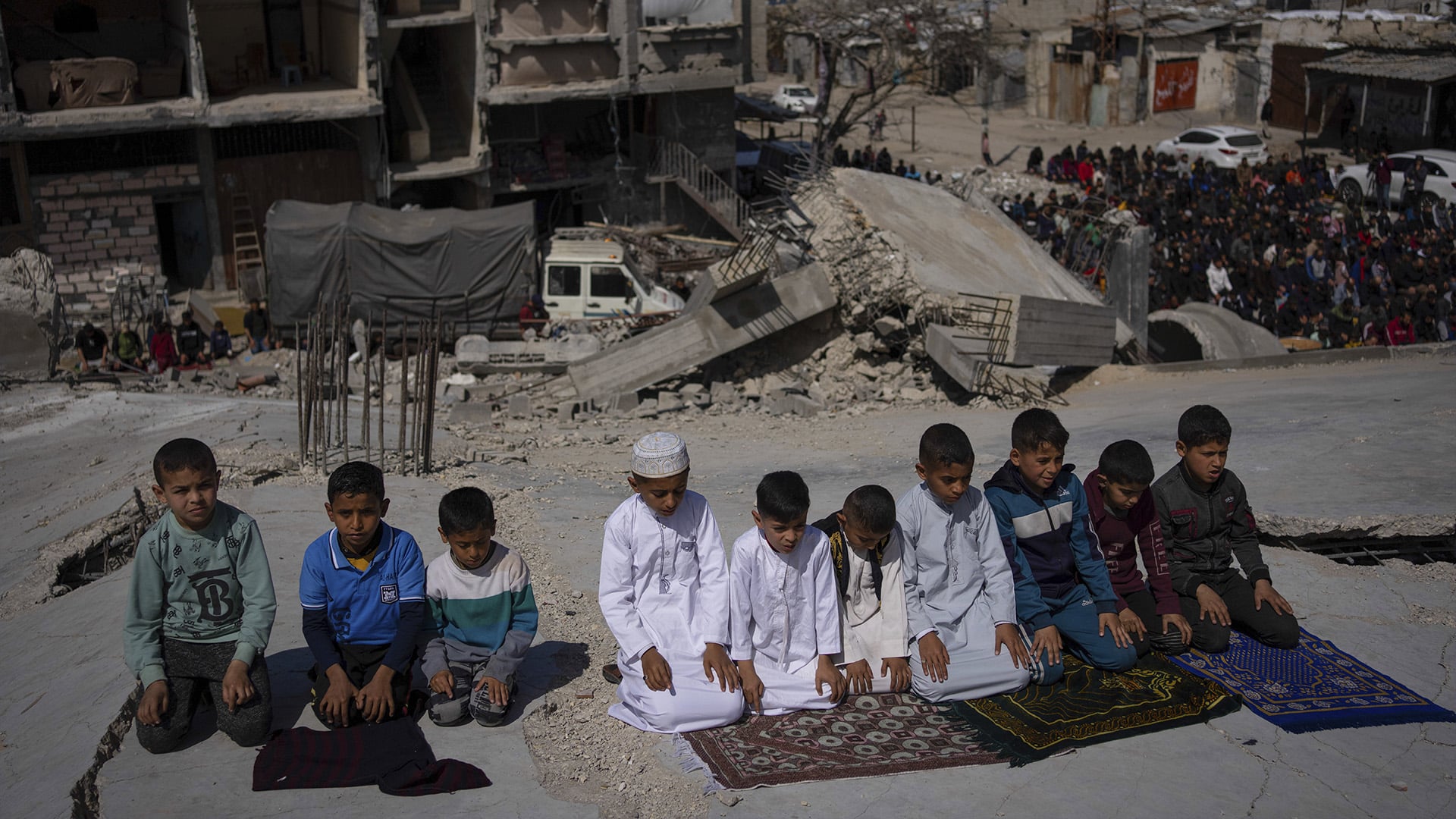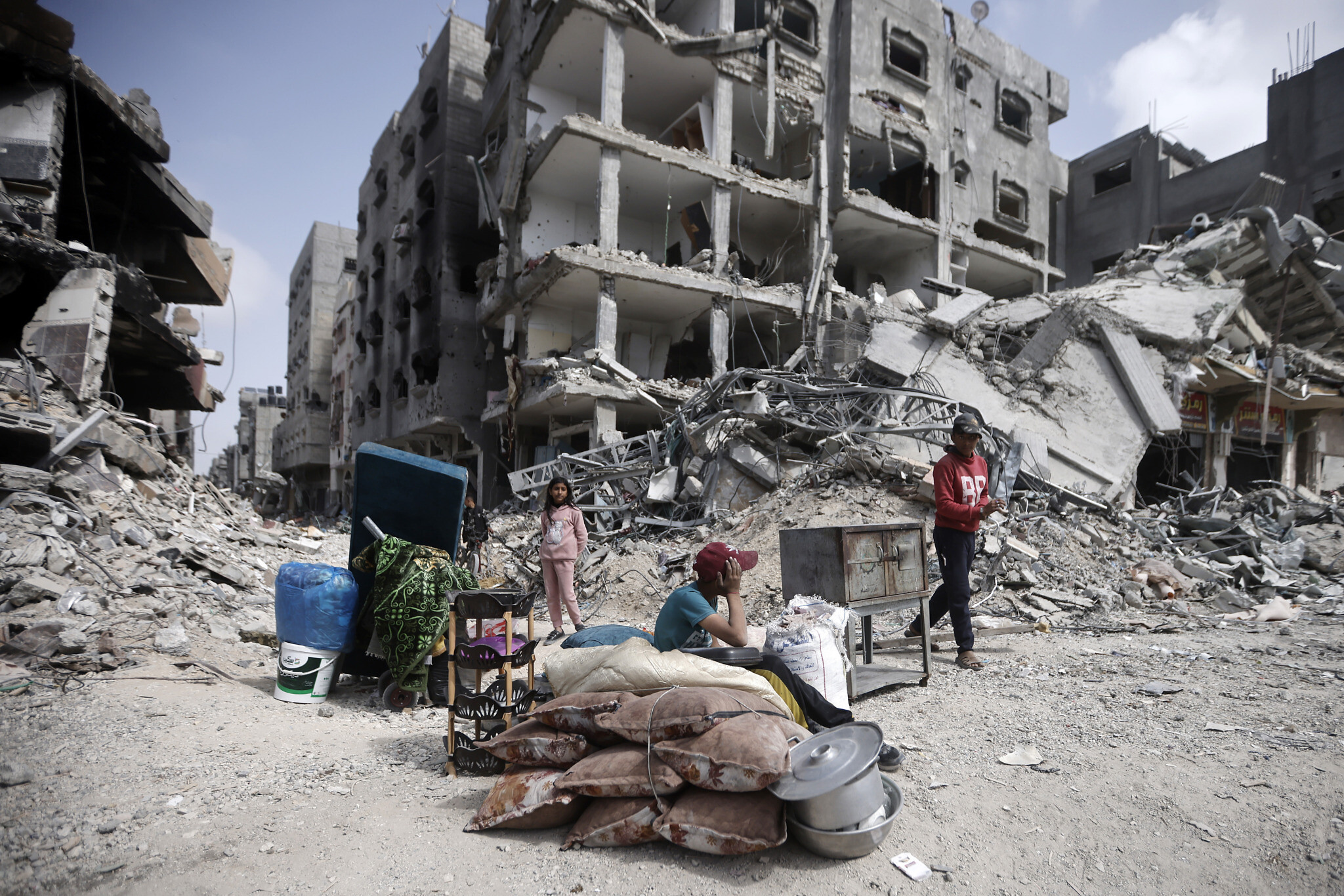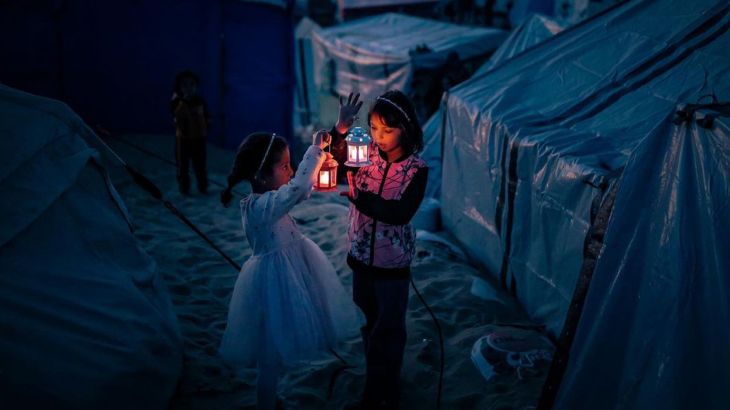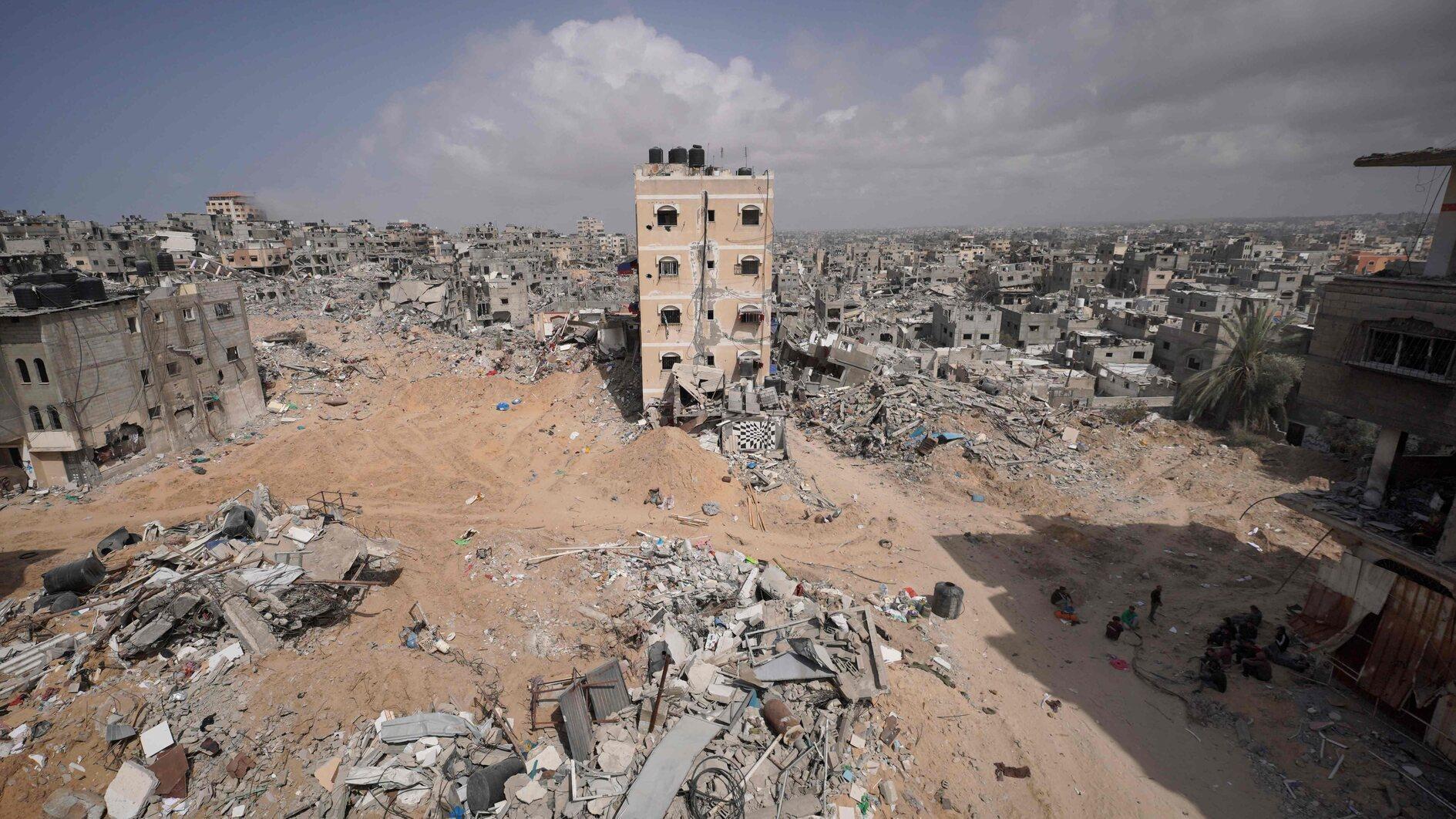JERUSALEM — On the eve of the Muslim fasting month of Ramadan, Jerusalem’s Old City lacks the customary festive characteristics.
Nearly half of the grotto-shaped souvenir shops are closed with metal shutters. The narrow alleyways leading to Al-Aqsa Mosque, Islam’s third holiest site, are strangely vacant. The fairy lights and brilliant lanterns that would normally hang over rushing worshippers are absent.
Ramadan preparations in Jerusalem, the spiritual centre of the decades-long Israeli-Palestinian conflict, have been hampered by the Israel-Hamas war in Gaza, which is now in its sixth month. With almost 30,000 Palestinians dying in Gaza and hundreds of thousands going hungry, there is little room for celebration.
“This will be the black Ramadan,” Abu Mousam Haddad declared in front of his coffee stand outside Damascus Gate, one of the Old City’s main entrances.
On The Eve Of Ramadan, Jerusalem’s Old City Provides Little Festivity As The Gaza War Rages.
However, over the following few days, emphasis is likely to turn from Gaza to Al-Aqsa, which has previously served as a hotspot for rapidly escalated Israeli-Palestinian violence.
Hamas, which framed its Oct. 7 onslaught on southern Israel as a war for Muslim rights at Al-Aqsa, is seeking such an eruption now in the hopes of engaging Israeli forces on new fronts and increasing its bargaining power in Gaza cease-fire talks.
The militants have urged Palestinians in Israel and the occupied West Bank to flock to the mosque during Ramadan to protest anticipated Israeli restrictions on worship and mobility.
Although similar limitations have frequently sparked previous riots, it is unclear whether Palestinians will risk confrontation in the current atmosphere, in which Israeli forces are clamping down hard on any perceived threats.
“There is great fear among people about what Ramadan will look like this year and how the Israeli police will behave regarding entry and exit… into the city,” said Imad Mona, the owner of a bookshop near the Old City.
Israel has restricted access to Al-Aqsa to varied degrees over the years, notably prohibiting young men, citing security concerns. The Israeli government has offered scant details about this year’s Ramadan, which could begin as early as Sunday evening. However, it has been suggested some Palestinians from the West Bank will be permitted to pray at Al-Aqsa.
In the past, Israeli police invading the holy site battled with stone-throwing Palestinians who barricaded themselves inside, often to protest Israeli access restrictions. Such skirmishes have provoked escalation, including Hamas rocket fire, which resulted in a brief Israel-Hamas conflict in 2021.
The compound has always been a hotly debated religious place because it is located on the Temple Mount, which Jews regard as their most sacred site. It is located in east Jerusalem, a sector of the city that Israel conquered during the 1967 Middle East War and later annexed. Palestinians intend to make it the capital of their future state.
On The Eve Of Ramadan, Jerusalem’s Old City Provides Little Festivity As The Gaza War Rages.
The US and other international mediators had pushed for a Gaza cease-fire to coincide with the beginning of Ramadan. However, there has yet to be a breakthrough.
Israel remains determined to continue its invasion and annihilate Hamas, who killed over 1,200 Israelis and kidnapped roughly 250 captives on October 7. During a November truce, the terrorist group liberated hundreds of prisoners, but it refuses to release any more unless there is a complete stop to hostilities.
Most Old City business proprietors declined to comment on the upcoming Ramadan. Israel has imprisoned scores of Palestinians for social media remarks criticizing the Gaza war since it began.
Some who spoke reported that extra Israeli police officers have been stationed in the Old City since October. According to business owners, young Palestinian men have been prohibited from entering the Al-Aqsa compound for Friday noon prayers regularly since the war began. This has generated discussion about more potential limits. The Israeli police have not responded to calls for comment.
According to Israeli media, the country’s outspoken national security minister, Itamar Ben Gvir, has been campaigning to exclude all West Bank Palestinians, as well as young men who are among Israel’s more than 2 million Palestinian citizens. His spokeswoman did not return a request for comment.
COGAT, the Israeli military authority in charge of Palestinian affairs in the West Bank, announced Friday that some West Bank Muslims would be allowed to enter the territory for Ramadan prayers but did not specify. Last year, hundreds of thousands of people were permitted to enter, with the majority being women, children, and senior men.
Prime Minister Benjamin Netanyahu has also been imprecise, stating that the same number of worshipers as last year will be allowed to pray at Al-Aqsa during the first week of Ramadan. He stated that this would be examined every week during the month. No further information was made available.
Since 1967, the Waqf, a Jordanian Muslim religious authority, has administered the property informally. Jews can visit the complex but cannot pray there. The accord has crumbled in recent years, as huge groups of Jews, including hardline religious nationalists, have made frequent visits. Some of them attempted to pray at the place.
In the days leading up to Ramadan, Palestinians in the West Bank were wondering whether they would be permitted to attend prayers.
On The Eve Of Ramadan, Jerusalem’s Old City Provides Little Festivity As The Gaza War Rages.
In general, Palestinians in the territory require a permit to visit East Jerusalem, which Israel regards to be part of its undivided capital, even though the majority of the international community does not accept its annexation. Since October 7, Israel has prohibited Palestinians from accessing Jerusalem or any area of Israel.
“It is the dream of every Palestinian, Muslim, and Arab to pray in Al-Aqsa Mosque” during Ramadan, said Akram al Baghdadi, a Ramallah resident with extended family living in the West Bank and Gaza.
The holy month also threatens to exacerbate divides within Israel’s turbulent cabinet, which is already split on how to handle the Gaza battle.
In a post on X, Ben Gvir criticized Netanyahu’s decision to allow Palestinians to pray at Al-Aqsa. He said that “Hamas celebrations on the Temple Mount” do not imply “a complete victory,” alluding to Netanyahu’s wartime battle cry.
Ben Gvir, who has been to the Al-Aqsa compound multiple times, is likewise a vociferous opponent of any cease-fire agreement with Hamas. He frequently supports Israeli settlement construction as well as the expulsion of Palestinians from Gaza, both of which are against the wishes of the majority of Cabinet members.
Months of conflict and tension have resulted in economic hardship, with fewer tourists and Palestinians buying in the Old City.
“It’s not just my shop that’s affected, but all the traders here,” said Jihad Abu Salih, a city-based sweets and pastry dealer. “It’s sad.”
SOURCE – (AP)












